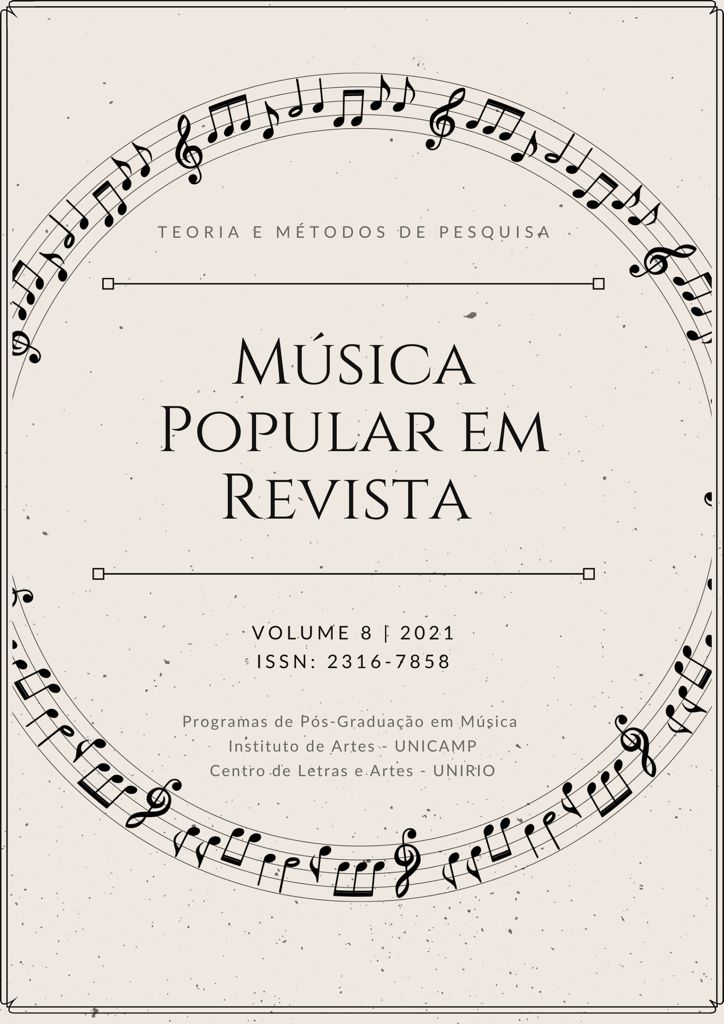Resumen
Es posible percibir, en el transcurso de la última década, un crecimiento relevante en el consumo de K-Pop (género musical surcoreano) a nivel global, y esta no es una excepción en la realidad brasileña. Teniendo un crecimiento significativo principalmente entre los jóvenes, el consumo del género termina ocupando, en muchos casos, un lugar central en la vivencia diaria de sus consumidores, quienes comienzan a establecer contactos con otros sujetos que también están vinculados a esta música, cruzando sus identidades y modificando sus trayectorias de vida junto con metas que acompañan al imaginario vinculado al género. Con base en esto, la presente investigación buscó comprender cómo se manifiesta este fenómeno en la ciudad de Curitiba, PR, Brasil, mediante entrevistas con consumidores de K-Pop sobre sus experiencias previas con el género, su contacto con él y sus perspectivas de futuro, ayudando para dilucidar las estructuras que rodean esta experiencia. Fue posible darse cuenta de que aprender coreano, viajar a Corea del Sur y construir su identidad fueron aspectos centrales para los participantes.
Citas
ANGELITA. Entrevista concedida a Gabriel Barth da Silva em 19 dez. 2020. 22 anos.
BAHL, Miguel; MURAD, Ivana Gaio. Legado japonês e turismo em Curitiba (Paraná, Brasil). RITUR: Revista Iberoamericana de Turismo, v. 1, n. 1, p. 47-62, 2011.
BECKER, Howard S. Art worlds: updated and expanded. Berkeley: University of California Press, 2008.
BERTO, Rachel Goulart; ALMEIDA, Mariza Costa. Quem são os fãs de K-pop no Brasil? Tecnologia & Cultura, Rio de Janeiro, ano 17, v. 25, 20271, p. 38-44, jan./jun. 2015. Disponível em: http://www.cefet-rj.br/attachments/article/195/revista25_virtual.pdf.
BOURDIEU, Pierre. Understanding. Theory, Culture & Society, v. 13, n. 2, p. 17-37, 1996.
BRAGA, Lívia. BTS: O fenómeno K-pop além da dimensão musical. Desenvolvimento e Sociedade, v. 4, n. 7, p. 79-86, 2019.
CAROLINA. Entrevista concedida a Gabriel Barth da Silva em 23 dez. 2020. 22 anos.
CHUN, Elaine W. How to drop a name: hybridity, purity, and the K-pop fan. Language in Society, v. 46, n. 1, p. 57-76, 2017.
DENORA, Tia. Music as a technology of the self. Poetics, v. 27, n. 1, p. 31-56, 1999
DENORA, Tia. Music in everyday life. Cambridge: Cambridge University Press, 2000.
GELERNTER, Lior; REGEV, Motti. Internet and globalization. The Routledge International Handbook of Globalization Studies, p. 62, 2010.
GEOVANNA. Entrevista concedida a Gabriel Barth da Silva em 26 dez. 2020. 23 anos.
GUERRA, Paula. A instável leveza do rock: gênese, dinâmica e consolidação do rock alternativo em Portugal (1980-2010). Porto: Afrontamento, 2013.
GUERRA, Paula. Under-Connected: Youth Subcultures, Resistance and Sociability in the Internet Age. In: GILDART, Keith; GOUGH-YATES, Anna; LINCOLN, Sian; OSGERBY, Bill; ROBINSON, Lucy; STREET, John; WEBB, Peter; WORLEY, Matthew (Ed.). Hebdige and Subculture in the Twenty-First Century. London: Palgrave Macmillan, 2020a. p. 207-230.
GUERRA, Paula. Women, migrations and rock without borders. Mémoire(s), identité(s), marginalité(s) dans le monde occidental contemporain, n. 21, 2020b.
GUERRA, Paula; BRANDÃO, Marcílio Dantas; SARROUY, Alix Didier. Antoine Hennion: música, mediação e amadores. Estudos de Sociologia, v. 2, n. 25, p. 29-49, 2019. Disponível em: https://periodicos.ufpe.br/revistas/revsocio/article/view/243762/34002.
HAN, Benjamin. Korean Wave| K-pop in Latin America: transcultural fandom and digital mediation. International Journal of Communication, v. 11, p. 20, 2017. Disponível em: https://ijoc.org/index.php/ijoc/article/view/6304.
HENNION, Antoine. Pragmática do gosto. Desigualdade & Diversidade: Revista de Ciências Sociais da PUC-Rio, v. 8, p. 253-277, 2011.
LAURA. Entrevista concedida a Gabriel Barth da Silva em 04 jan. 2021. 24 anos.
MADRID-MORALES, Dani; LOVRIC, Bruno. “Transatlantic connection”: K-pop and K-drama fandom in Spain and Latin America. The Journal of Fandom Studies, v. 3, n. 1, p. 23-41, 2015.
MALIK, Zunera; HAIDAR, Sham. Online community development through social interaction—K-Pop stan twitter as a community of practice. Interactive Learning Environments, p. 1-19, 2020.
MESSERLIN, Patrick A.; SHIN, Wonky. The K-pop Success: How Big and Why So Fast. Asian Journal of Social Sciences, v. 45, n. 4-5, p. 409-439, 2017.
REGATIERI, Ricardo Pagliuso. Development and Dream: On the Dynamics of K-Pop in Brazil. Development and Society, v. 46, n. 3, p. 505-522, 2017.
REGEV, Motti. Cultural uniqueness and aesthetic cosmopolitanism. European Journal of Social Theory, v. 10, n. 1, p. 123-138, 2007.
REGEV, Motti. Postlude: world culture after cultural globalization. Poetics, v. 75, 2019.
THOMPSON, Paul Richard. A voz do passado: história oral. Rio de Janeiro: Paz e Terra, 1992.
WILLIAMS, J. Patrick. Negotiating fan identities in K-Pop music culture. Studies in Symbolic Interaction, v. 47, p. 81-96, 2016.
VALQUÍRIA. Entrevista concedida a Gabriel Barth da Silva em 12 dez. 2020. 26 anos.
YIN, Robert K. Case study research and applications: design and methods. [S. l.]: Sage, 2017.
YOON, Kyong. Global imagination of K-pop: Pop music fans’ lived experiences of cultural hybridity. Popular Music and Society, v. 41, n. 4, p. 373-389, 2018.

Esta obra está bajo una licencia internacional Creative Commons Atribución 4.0.
Derechos de autor 2021 Gabriel Barth da Silva


